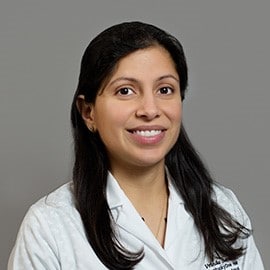
Heart disease is the nation’s leading killer of women. More women die of heart disease than all other cancers combined. At some point in their lives, 90% of women will experience one or more symptoms of heart disease. Hence, women need to recognize the risk factors causing cardiovascular disease to effectively prevent it.
Know the Symptoms of a Heart Attack
Men’s and women’s heart attack symptoms can vary. Unfortunately, women usually have atypical or fewer symptoms than men. Symptoms for women include but are not limited to:
- Chest pain/pressure (but not always)
- Nausea or vomiting
- Jaw, neck or upper back pain
- Pain or pressure in the lower chest or upper abdomen
- Shortness of breath
- Fainting
- Indigestion
- Extreme fatigue
Get a Good Annual Check Up
Just like you see your tax accountant every year, remember to visit your primary care provider, too. This visit should focus on risk factor modification for heart disease and is essential for all people after age 30. This should include checking your blood pressure, a fasting lipid profile (cholesterol), screening for diabetes and thyroid disease, discussing your ideal weight and healthy weight loss options, if necessary, and counseling on any substance addiction (chiefly smoking and measures to help quit). Of course, it is always important to go over any concerning symptoms you may be having. In addition, women should have regular dental check ups, as dental inflammation has been correlated with heart health.
Get Enough Sleep
Research has shown that getting less than six to seven hours of sleep a night has been linked to heart disease, high blood pressure and excessive weight gain. In addition, it can cause fatigue, making it difficult to exercise.
Manage Stress
Chronic stress can lead to factors that impact heart disease, such as high blood pressure, high cholesterol, inactivity and overeating. Exercising, meditation or yoga, eating healthy, getting plenty of sleep or talking to a friend, family member or doctor, can help minimize the stress in your life.
Tell Your Doctor if You had a Pregnancy Complication
Recent research has found a connection between heart disease and pregnancy-related complications. Hypertension (or eclampsia) and diabetes during pregnancy have been linked to cardiovascular disease years later.
Find a Health Partner
Work with a health care provider to find a customized treatment plan that fits your lifestyle and needs. It would also be helpful to exercise with a friend or family member who will keep you on track to a healthier lifestyle!
It is important to speak to your doctor if you have any concerning symptoms and, in case of an emergency, call 911. To find care or a provider, visit UofLHealth.org/Providers.
For additional resources about heart health, visit Heart.org.








